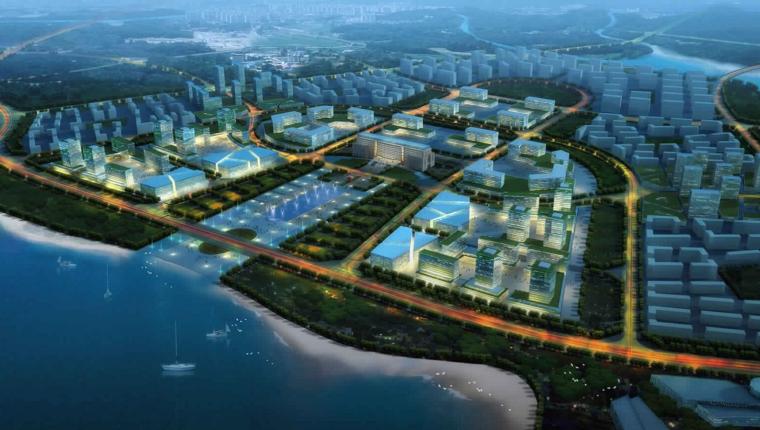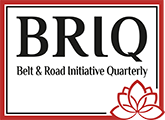
BRIQ (Belt & Road Initiative Quarterly) is currently seeking submissions for a special issue on “Building an Ecological Civilization in the 21st Century: Perspectives from the Developing World”.
The ecological crisis is globally recognized as one of the most fundamental challenges of our time. This recognition was strongly felt in the intensity of extreme weather events in 2019, which witnessed a record number of around 7 million people displaced due to environment-related causes. The year 2019 is also ranked as the second-hottest year on record for the planet. Moreover, last year marked an epochal turning point in the history of environmentalism. The global climate strike mobilized over 7.6 million people across the world and was thus designated the biggest demonstration in the history of environmental activism. Not only did these strikes deal a devastating blow to science denialism, but also environmentalism was brought to the mainstream of global politics. However, this activism has so far failed to meaningfully bridge the current ecological crisis and the crucial problems of capitalist-imperialism by targeting the Western establishment’s moral legitimacy, including that of the Davos elite and other corporate circles.
In this context, it is ever more important to reassess the key environmental challenges faced by developing countries and draw lessons from their policies away from what one could call “green imperialism”. Here, green imperialism describes a phenomenon in which developed countries put the blame of environmental degradation on developing countries and neglect the contributions of the developing world to the resolution of the ecological crisis. Similarly, green imperialism associates environmental activism with Western upper-class philanthropy and middle-class activism, and frequently frames the developing world’s problems from the lens of First-World elites. One could argue that developed countries achieved economic success at irreversible environmental costs as the main culprit of today’s ecological crisis since the Industrial Revolution. These countries relocated their industrial base to the developing world for cost reduction purposes and imposed neoliberal policies on developing countries. Such actions deepened global socio-economic inequalities by also rendering less affluent nations more vulnerable to environmental disasters. Currently contributing to almost half of the world’s production, however, developing countries will soon take the lead in building an ecological civilization by extricating themselves from the status of colonial victims. A strong case in point is China, which recently asserted itself as a leading actor in the creation of a “global ecological civilization” by promoting joint efforts towards environmental governance and sustainable development.
Based on the context depicted above, the Belt & Road Initiative Quarterly (BRIQ) calls for academic articles, essays and book reviews that address issues related to the challenge of building an ecological civilization in one or many relevant areas such as climate change, biodiversity loss, land-system change, altered biogeochemical cycles, ocean acidification, freshwater use, atmospheric aerosol loading, chemical pollution, and stratospheric ozone depletion.
Broad topics of interest include, but are not limited to:
- The concept of ecological civilization;
- The concept of green imperialism;
- The Belt and Road Initiative and the Green Belt;
- Ecological challenges faced by individual Belt and Road countries;
- Policy lessons drawn from the environmental struggle of individual Belt and Road countries;
- Environmental prospects, successes and failures of individual Belt and Road countries;
- Recommendations and remedies for improving environmental cooperation in the developing world;
- Bioeconomy and low-carbon economy in the developing world;
- Sustainable agriculture and agrarian reform in the developing world;
- The link between inequality and environmental problems in the developing world;
- Bottom-up ecological alternatives and green social movements.
Deadline for Paper Submissions: May 01, 2021
Journal Information and Submission Guidelines
Submission Guidelines
BRIQ (Belt & Road Initiative Quarterly) is a scholarly journal of international politics, economy, and culture.
Belt and Road Initiative Quarterly (BRIQ) features a broad range of content, from academic articles to book reviews, review essays, interviews, news reports, and feature articles.
The Editorial Board can issue calls for papers for special issues and invite authors to contribute manuscripts; however, it also welcomes unsolicited submissions.
Submissions are invited in English or Turkish. All submissions are to include a short biography (150-word limit) and should be sent as Microsoft Word attachments to briq@briqjournal.com . Articles or other content that have been previously published or are under review by other journals will not be considered for publication.
BRIQ follows American Psychology Association style (6th edition, https://www.apastyle.org) and uses American English spelling.
BRIQ uses a double-blind review process for all academic articles.
Academic articles should be between 5,000 and 9,000 words in length, including abstracts, notes, references, and all other content. Please supply a cover page that includes complete author information, and a fully anonymized manuscript that also contains an abstract (200- word limit) and 5 keywords.
Book reviews should not exceed 1,000 words; review essays covering two or more works can be up to 3,000 words.
News reports consisting of brief analyses of news developments should not exceed 1,500 words; feature articles combining reporting and analysis can be up to 3,500 words.
Please contact the Editorial Board for interview proposals.
